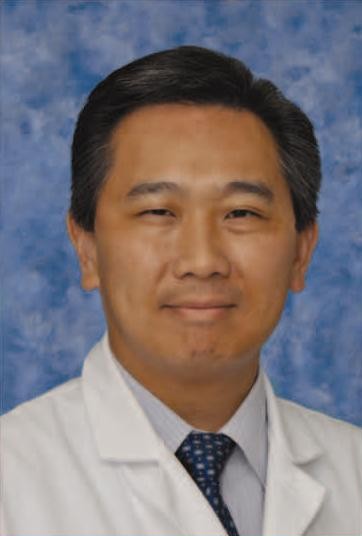 This is a very exciting time for the department of ophthalmology and visual sciences at Albert Einstein College of Medicine and Montefiore Medical Center. I have always respected the histories and reputations of these fine institutions, and I was drawn to them because of their bright futures. Indeed, it is to the future that we all are looking, as we strive to take our department to the highest levels of excellence. The physicians offer a breadth and depth of experience, compassion, and abilities that are truly impressive. As clinicians, their skills are superb. As researchers, their determination to develop new diagnostic and treatment protocols is outstanding, supported by our new office of clinical trials, which is designed to set up and perform a wide range of ophthalmology clinical trials. And as teachers of the next generation of physicians, their commitment is something I am extremely proud to share.
This is a very exciting time for the department of ophthalmology and visual sciences at Albert Einstein College of Medicine and Montefiore Medical Center. I have always respected the histories and reputations of these fine institutions, and I was drawn to them because of their bright futures. Indeed, it is to the future that we all are looking, as we strive to take our department to the highest levels of excellence. The physicians offer a breadth and depth of experience, compassion, and abilities that are truly impressive. As clinicians, their skills are superb. As researchers, their determination to develop new diagnostic and treatment protocols is outstanding, supported by our new office of clinical trials, which is designed to set up and perform a wide range of ophthalmology clinical trials. And as teachers of the next generation of physicians, their commitment is something I am extremely proud to share.
The future of vision restoration in blindness and effective treatment of age-related eye diseases depends on advances in basic science research and its translation into the clinic. To accomplish this goal, vision research in the first decades of the 21st century is based on the foundation of the human genome project, which has led to genetic studies in affected families and in large populations; identification and functional characterization of critical genes and pathways implicated in eye disease, neuroscience and neurobiology; studies of disease mechanisms in model organisms and in cell-based systems; studies of environmental and epigenetic factors; and tissue engineering and pharmacological experiments, including nanotechnology.
At Einstein, our department is in an excellent position to integrate these components into a strong multidisciplinary approach to better understand, diagnose and cure a range of retinal, lens and corneal diseases. We aim to be among the most innovative vision research centers in the US. During the next several years, we will continue to focus on disorders including cataracts, refractive eye conditions, ocular surface disease/dry eye, orbital problems, glaucoma, macular degeneration and eye conditions associated with diabetes in adults and children.
Our faculty receives strong and continuous support form the National Eye Institute and other organizations. To foster our most innovative research and to recruit new faculty, philanthropic support is vital to our mission. Please visit our donation page. This is truly a great time to be part of our growing department, and I look forward to even greater things to come.
Roy S. Chuck, MD, PhD
Professor and Chair
Paul Henkind Chair in Ophthalmology